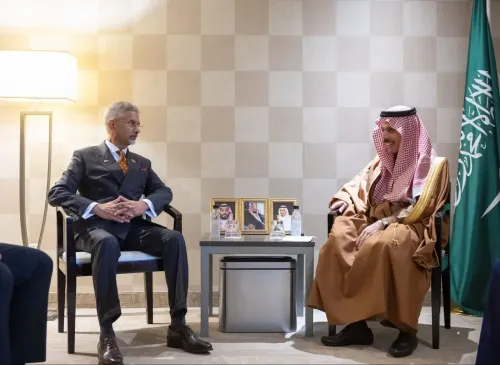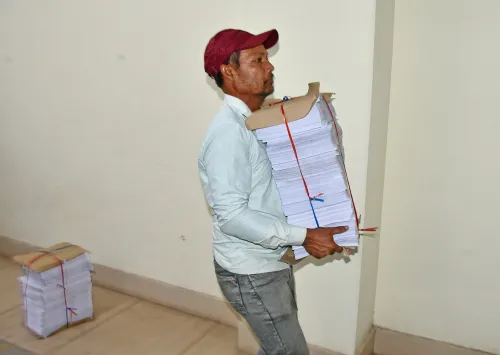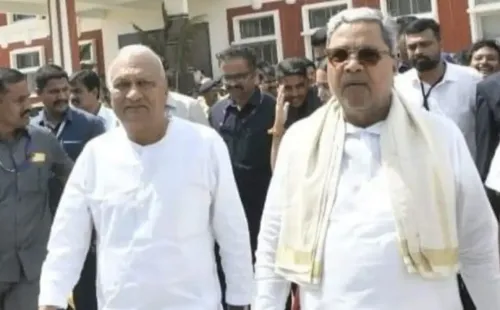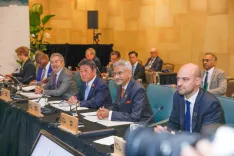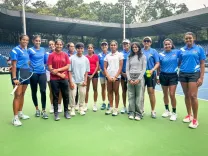How is EAM Jaishankar Shaping India’s Role as a ‘First-Responder’ at G7 Maritime Security Session?
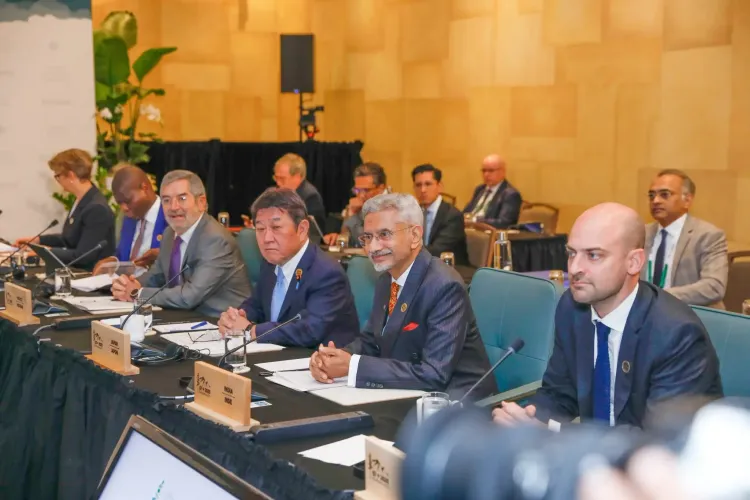
Synopsis
Key Takeaways
- India's proactive maritime strategy emphasizes collaboration and resilience.
- Jaishankar's recommendations call for upgraded shipping infrastructure.
- International cooperation is essential to tackle maritime threats.
- Significance of UNCLOS in maintaining maritime order.
- Resilient ports are vital for economic prosperity.
Washington, Nov 12 (NationPress) External Affairs Minister (EAM) S Jaishankar participated in a crucial session on maritime security during the G7 Foreign Ministers' meeting on Wednesday, emphasizing India's role as a “first-responder in the maritime domain” and the nation’s “commitment to enhancing HADR partnerships in the Indo-Pacific through joint exercises and logistics agreements.”
He also highlighted New Delhi's strategy for maritime security, which includes the “MAHASAGAR outlook, Indo-Pacific collaboration, and port-led development domestically.”
In a post on X, Jaishankar outlined India’s targeted recommendations: “The necessity of trusted and diversified maritime links. India’s initiatives to enhance its shipping infrastructure and establish resilient corridors. The essential coordination required to safeguard critical maritime and undersea infrastructure. Maritime threats and economic crimes, such as piracy, smuggling, and IUU fishing, require enhanced international cooperation.”
The EAM underscored the significance of “maritime trade for national and international prosperity in an interconnected world, and the pivotal role of resilient ports and secure waterways in advancing our collective agenda,” adding that “UNCLOS must be upheld.”
US Secretary of State Marco Rubio also shared a photo from the maritime security session on X, depicting EAM Jaishankar alongside other foreign ministers.
Rubio mentioned in the post, “From the Gulf of America to the Pacific, safe and open waterways form the backbone of the American economy, transporting U.S. products to global markets. Today, we engaged in vital discussions with @G7 partners on enhancing coordination to support U.S. efforts for improved maritime security.”
Earlier on Wednesday, Jaishankar had a bilateral meeting with Rubio, where the US Secretary of State expressed his condolences regarding the loss of life in the recent Delhi blast.
EAM Jaishankar tweeted, “Good to meet @SecRubio this morning at #G7 FMM. Grateful for his condolences regarding the loss of life in Delhi’s blast. We discussed our bilateral relations, focusing on trade and supply chains, and exchanged perspectives on the Ukraine conflict, the Middle East/West Asia situation, and the Indo-Pacific.”
On Tuesday, Jaishankar conducted multiple bilateral meetings with counterparts from Canada, Mexico, France, Brazil, South Africa, the UK, and Germany.
India is attending the G7 Foreign Ministers’ Meeting as an invited partner under Canada’s presidency, alongside Brazil, Australia, and South Korea. This two-day event emphasizes global security, economic resilience, energy cooperation, and strengthening partnerships in the Indo-Pacific region.

